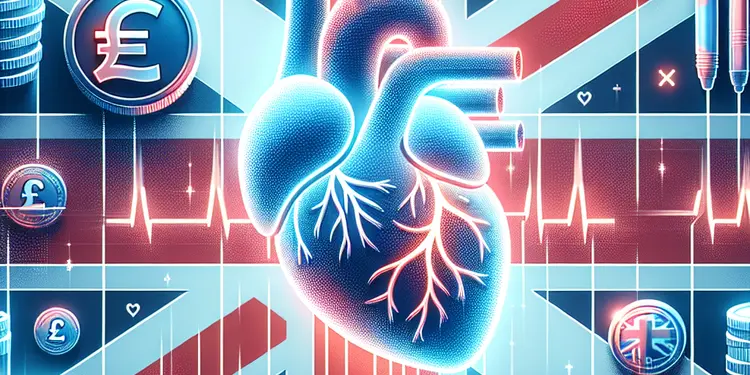
Find Help
More Items From Ergsy search
-
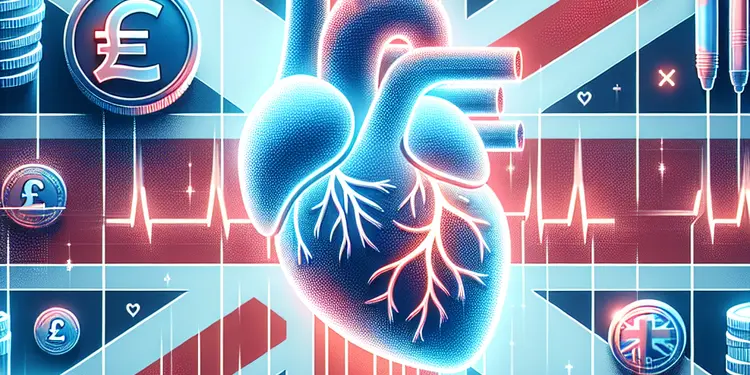
What are the long-term effects of a heart attack?
Relevance: 100%
-
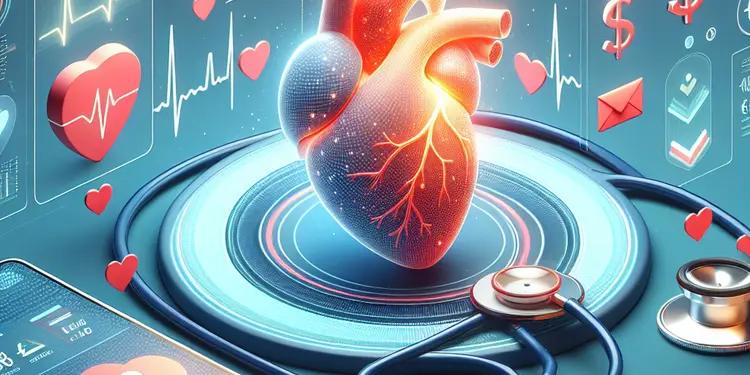
Is it possible to prevent a heart attack?
Relevance: 62%
-
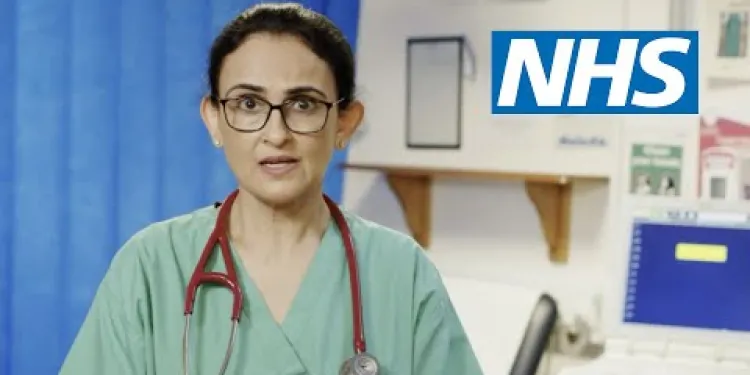
Heart Attack Stories | NHS
Relevance: 62%
-
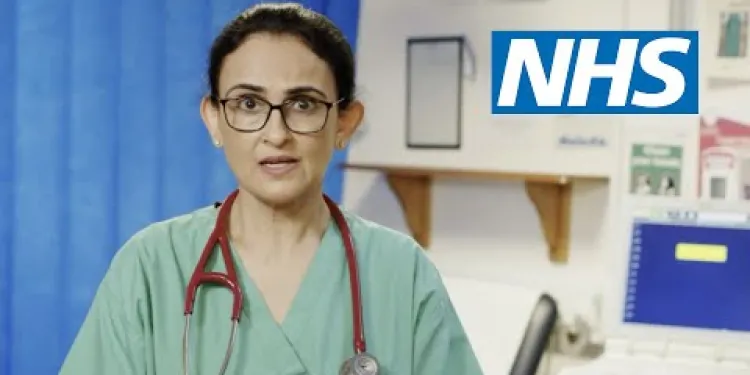
Heart Attack Stories | NHS
Relevance: 62%
-
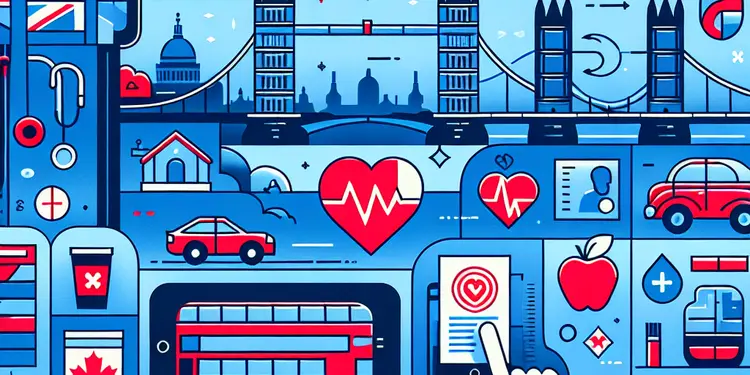
What are the risk factors for a heart attack?
Relevance: 61%
-
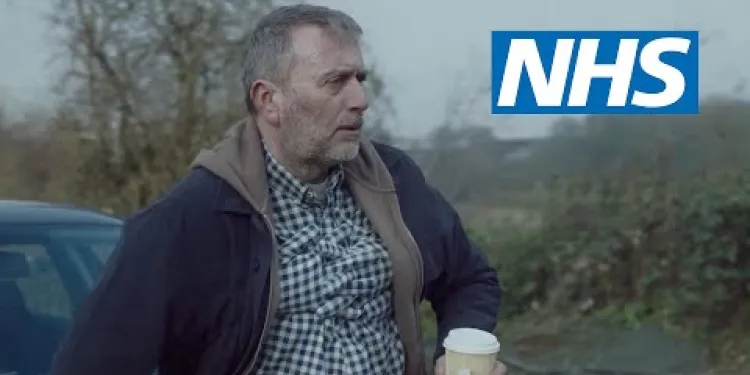
Heart Attack Symptoms - Help Us Help You | NHS
Relevance: 60%
-
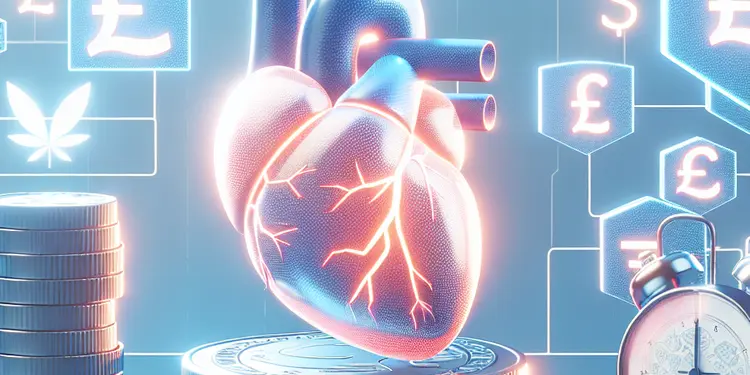
How do beta-blockers contribute to heart attack prevention?
Relevance: 59%
-
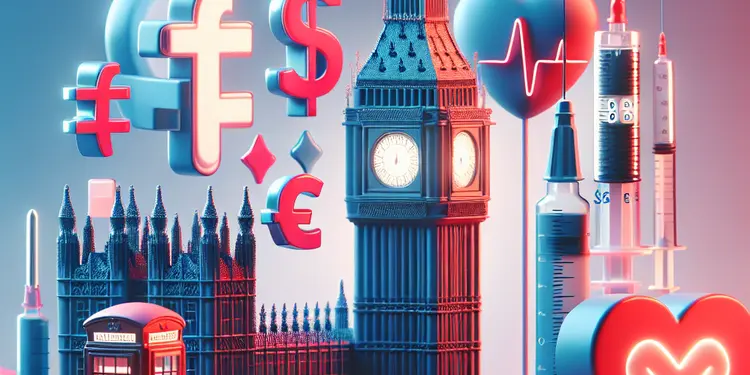
Are heart attack symptoms different for people with diabetes?
Relevance: 59%
-
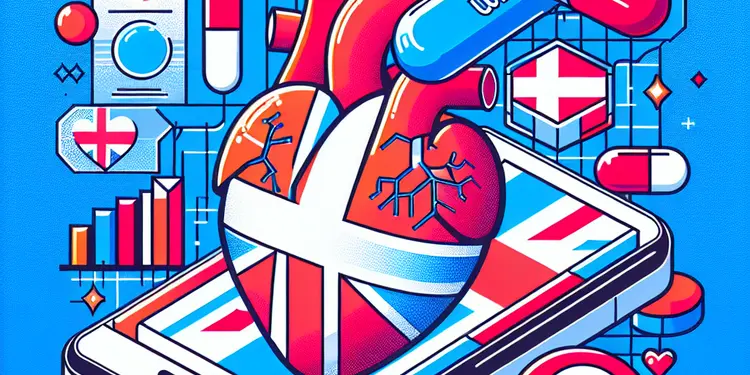
Do calcium channel blockers help in preventing heart attacks?
Relevance: 58%
-
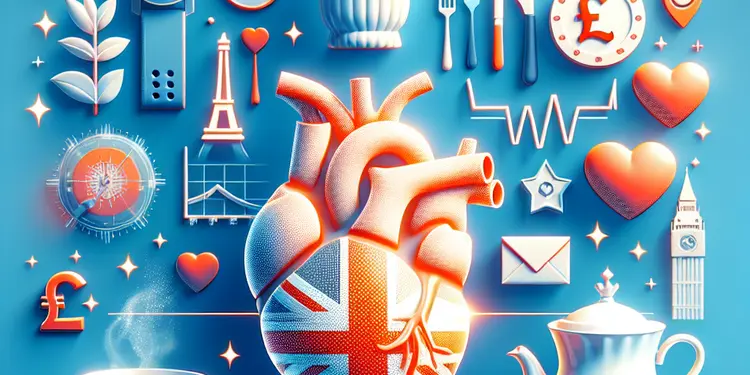
Is it possible to have a heart attack without chest pain?
Relevance: 58%
-
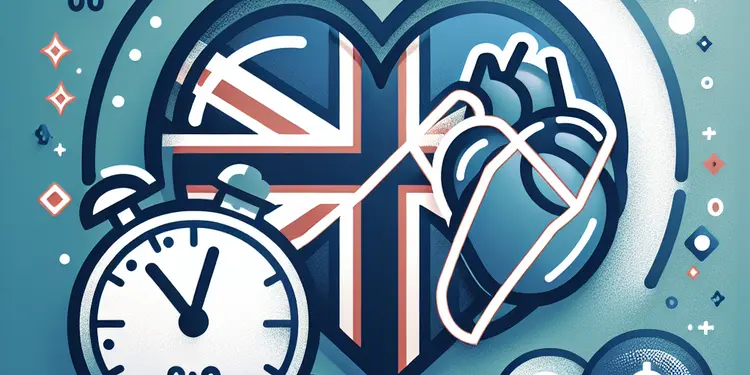
How long do heart attack symptoms last?
Relevance: 58%
-
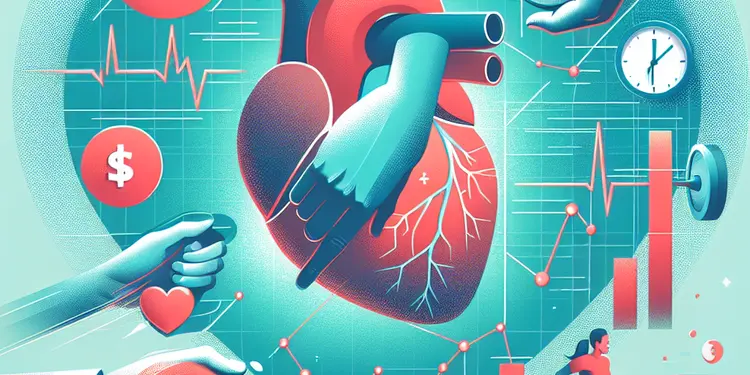
Can physical exertion trigger a heart attack?
Relevance: 57%
-
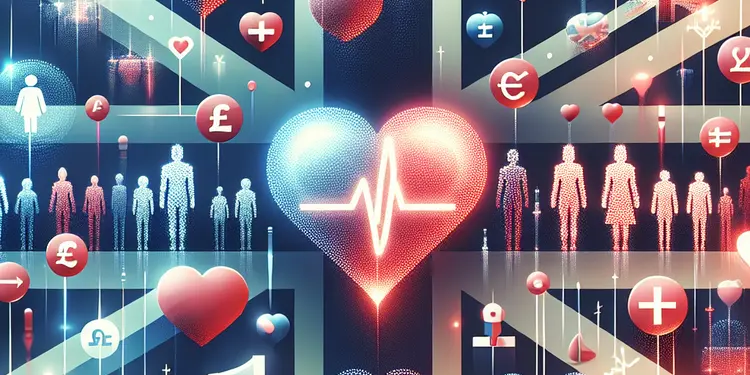
Can heart attack symptoms vary by age?
Relevance: 57%
-
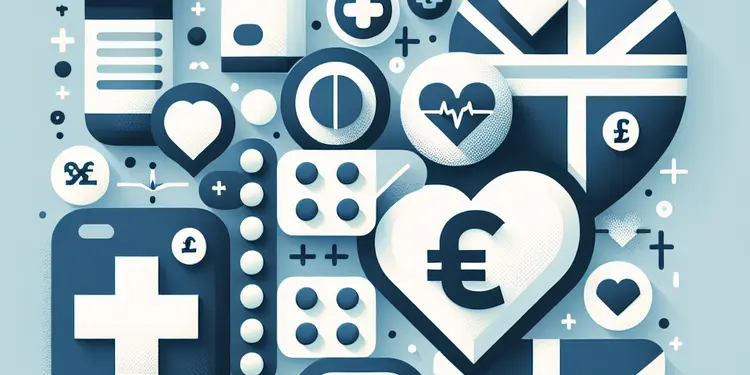
What drugs are commonly prescribed to reduce the risk of heart attacks?
Relevance: 56%
-
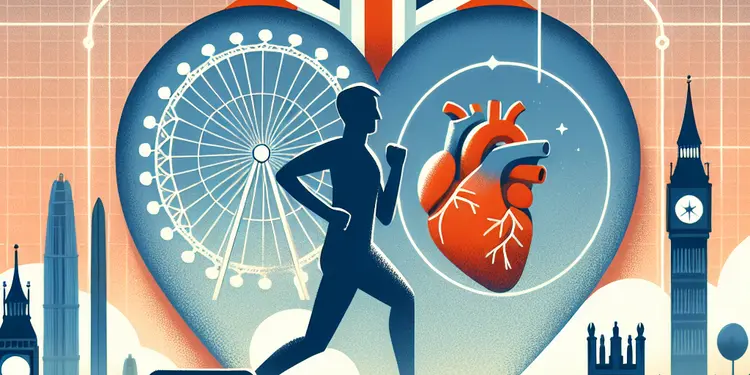
What should I do if I'm experiencing heart attack symptoms?
Relevance: 56%
-
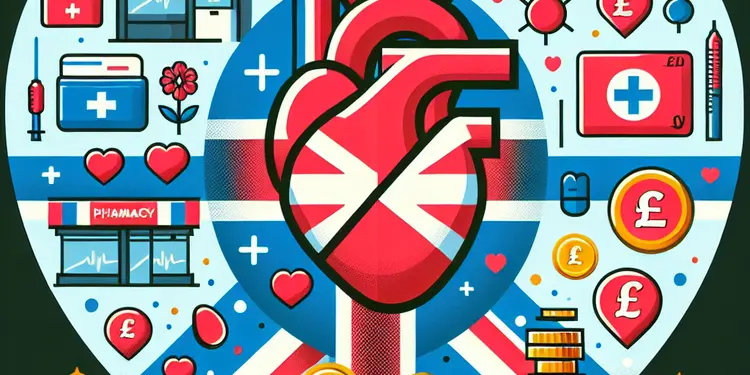
Do over-the-counter medications help in preventing heart attacks and strokes?
Relevance: 56%
-
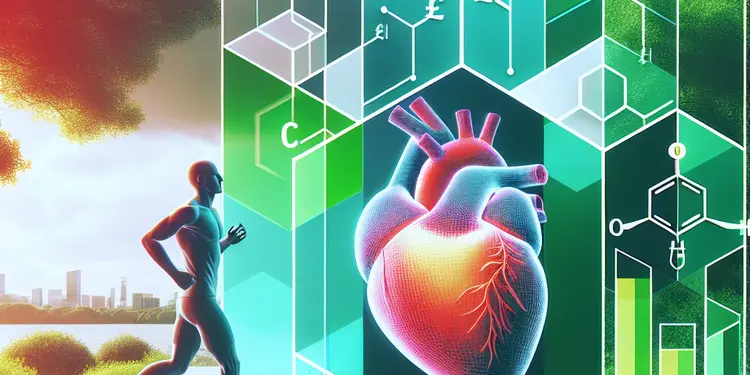
What is the role of PCSK9 inhibitors in heart attack prevention?
Relevance: 55%
-
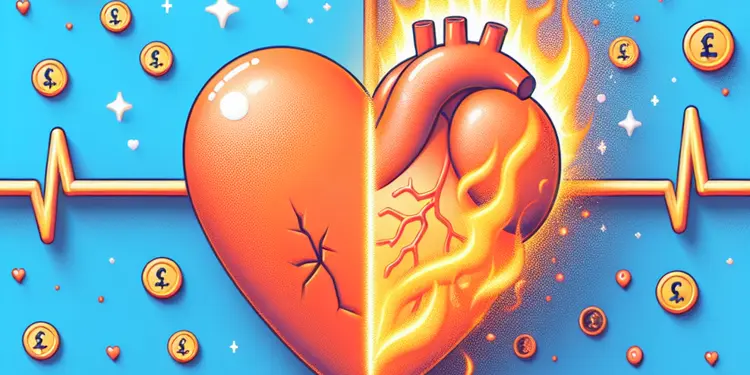
How can I differentiate between heartburn and a heart attack?
Relevance: 55%
-

Heart Attack Symptoms - Peter Dale (Tubes) | NHS
Relevance: 55%
-

Can women have different heart attack symptoms than men?
Relevance: 54%
-
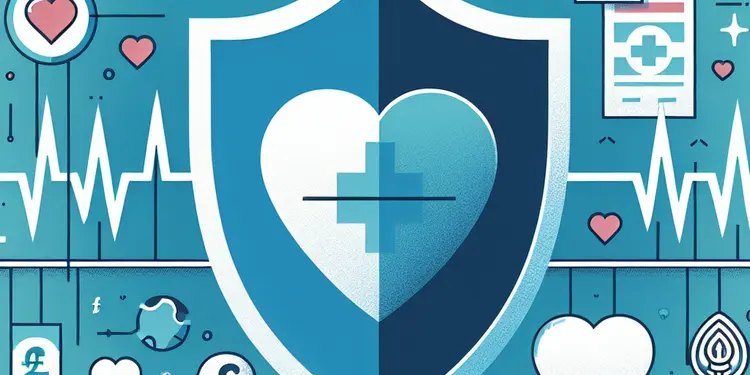
When should one start taking medication for heart attack prevention?
Relevance: 54%
-
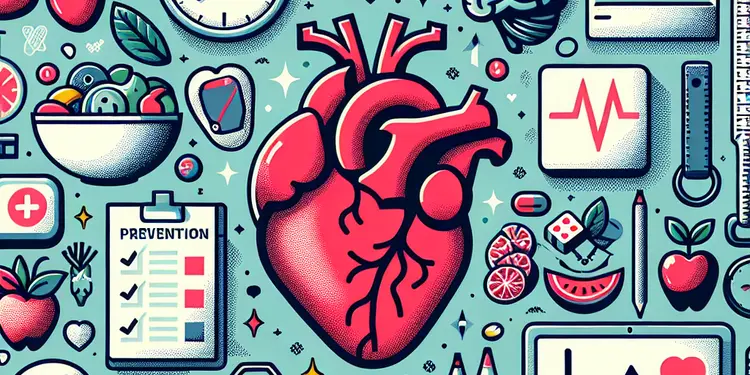
What is the role of lifestyle modification in heart attack and stroke prevention?
Relevance: 54%
-

Do all patients need medication to prevent heart attacks and strokes?
Relevance: 53%
-
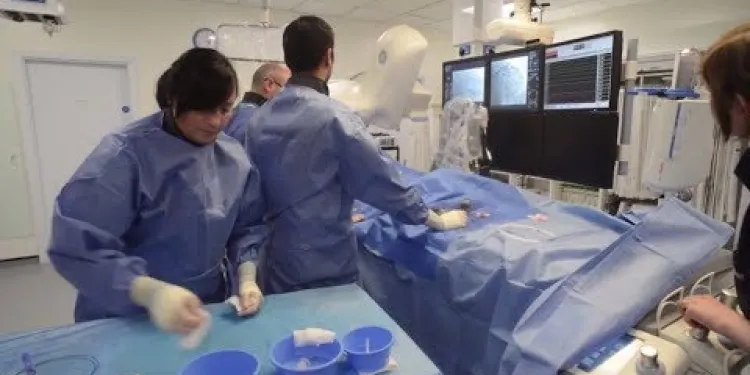
Heart attack care - Raigmore Hospital Inverness, NHS Highland
Relevance: 53%
-

Are there any long-term effects of using Ozempic?
Relevance: 53%
-
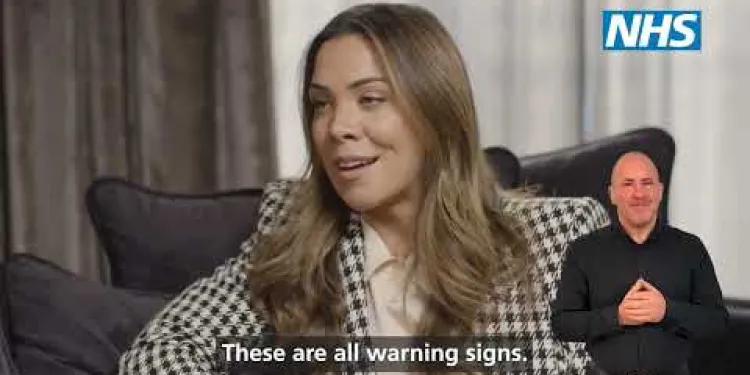
Heart Attack Symptoms - Peter Dale (Tubes) | NHS - BSL version
Relevance: 52%
-
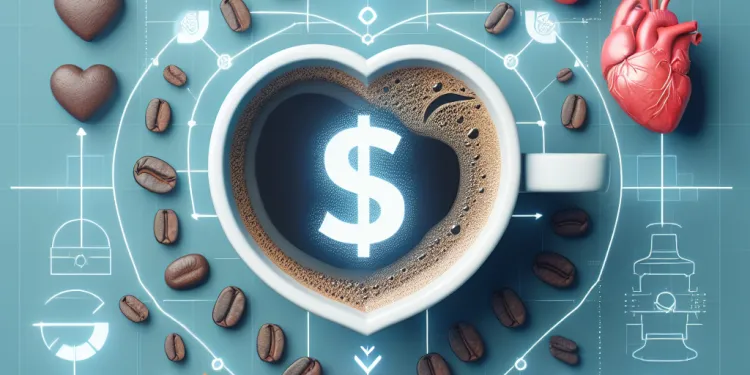
Does coffee consumption have any long-term heart health effects?
Relevance: 51%
-
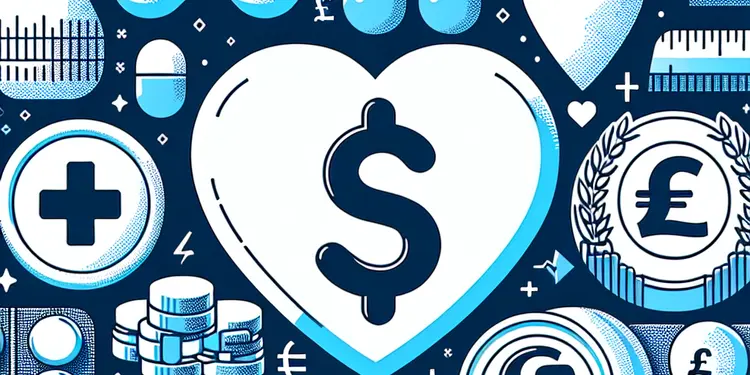
Can diabetes medications also help reduce heart attack risk?
Relevance: 51%
-
What are the long-term effects of untreated eating disorders?
Relevance: 46%
-

Are there any long-term effects of gonorrhoea?
Relevance: 45%
-

Does ketamine have long-term effects?
Relevance: 44%
-
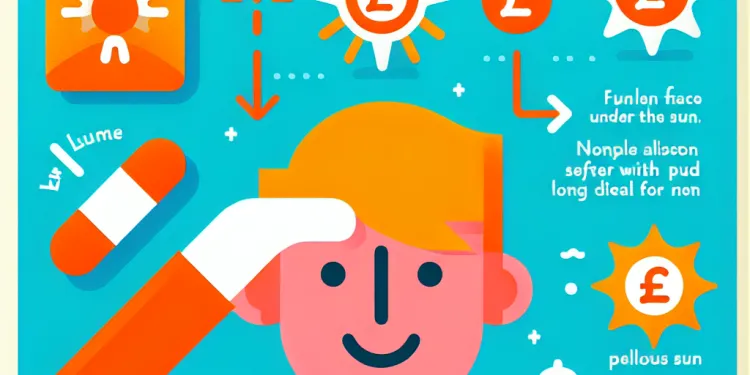
What are the long-term effects of sunburn?
Relevance: 44%
-

Are there any long-term effects of Chikungunya infection?
Relevance: 42%
-

Are there any long-term effects of using Botox?
Relevance: 42%
-

Can whiplash have long-term effects?
Relevance: 42%
-

Heart stents
Relevance: 42%
-
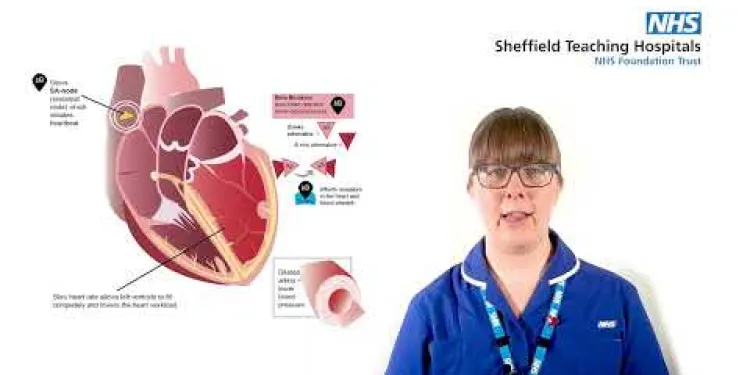
Medicines of the heart
Relevance: 41%
-
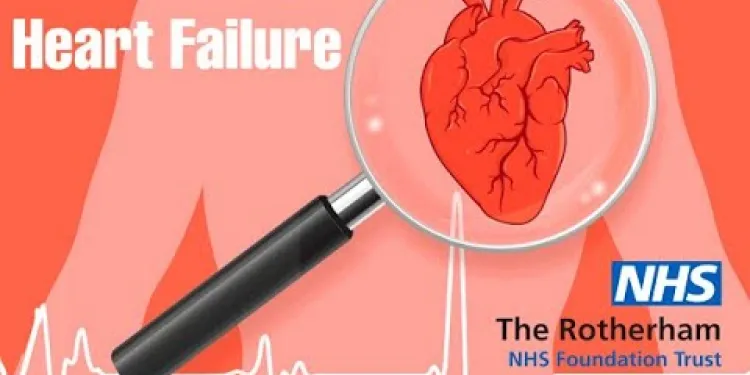
Heart Failure : When the heart becomes stiff?
Relevance: 41%
-
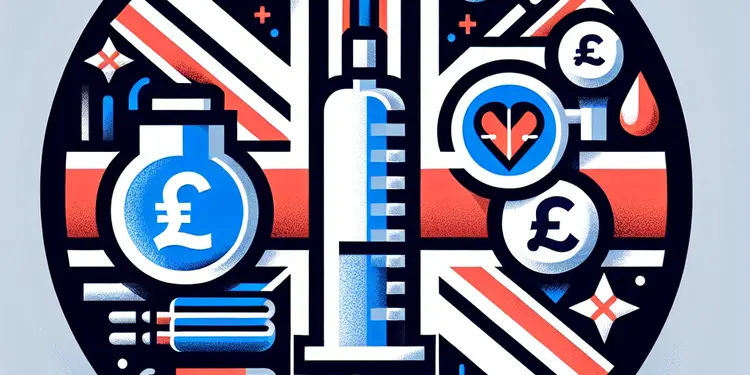
Are there any long-term side effects of the COVID jab?
Relevance: 41%
-

What are the long-term effects of repeated heatwave exposure?
Relevance: 41%
Understanding the Long-Term Effects of a Heart Attack
Experiencing a heart attack is a significant health event with both immediate and chronic implications. It's crucial for individuals in the UK to be informed about the potential long-term effects and how they might impact one's life. While medical advancements have improved survival rates, a heart attack can leave lasting changes in the body that require attention and management.
Cardiac Function and Health
One of the most direct effects of a heart attack is on cardiac function itself. The heart muscle, once damaged, may not work as efficiently as before. This can lead to conditions such as heart failure, where the heart struggles to pump blood effectively. Patients may experience symptoms like breathlessness, fatigue, and swelling in the legs due to fluid retention. Structural changes in the heart muscle can also result in arrhythmias, which are abnormal heart rhythms that might necessitate medication or the implantation of a pacemaker.
Lifestyle Adjustments
Following a heart attack, lifestyle changes become essential for long-term health. This often involves adopting a heart-healthy diet, engaging in regular physical activity, and avoiding smoking and excessive alcohol consumption. These changes help reduce the risk of further cardiac events. Many patients may need to participate in cardiac rehabilitation programmes, which are tailored to improve cardiovascular health and quality of life.
Mental and Emotional Impact
Beyond physical health, a heart attack can have significant mental and emotional consequences. Survivors may experience anxiety, depression, or stress about their health and future. This psychological impact can affect one's quality of life and may require counselling or therapy to address. Support groups and mental health services can offer valuable resources for coping and adjustment.
Medication and Ongoing Medical Care
Post-heart attack care often includes a regimen of medications to prevent future cardiac events and manage risk factors. These medications may include antiplatelet drugs like aspirin, statins for cholesterol management, beta-blockers for blood pressure control, and ACE inhibitors to help heart function. Regular follow-ups with healthcare professionals are essential to monitor the condition and adjust treatments as necessary.
Risk of Recurrence
Unfortunately, having had one heart attack increases the risk of subsequent heart attacks. Therefore, it is imperative to adhere to medical advice and lifestyle modifications diligently. Staying informed about heart health and maintaining regular check-ups can help mitigate this risk. The NHS offers resources and guidance for individuals looking to maintain heart health post-heart attack.
Conclusion
While a heart attack can lead to significant long-term effects, understanding and managing these impacts can significantly improve outcomes. With the right lifestyle changes, medical care, and support, individuals can lead fulfilling lives. It’s important for those affected in the UK to access available resources and take proactive steps in their recovery journey.
What Happens After a Heart Attack?
A heart attack is a serious health event. It can change the way you live and how you feel. In the UK, it's important to know what can happen in the long run. Even though doctors can help you survive a heart attack, there might be changes in your body that you need to care for.
How the Heart is Affected
A heart attack can make your heart weaker. This means your heart might not pump blood as well as it used to. You might feel very tired, have trouble breathing, or notice your legs swelling. A heart attack can also cause your heart to beat in odd ways. You may need medicine or a pacemaker to help keep your heart steady.
Changing Your Lifestyle
After a heart attack, you will need to change some of your habits to stay healthy. Eating good foods, exercising, not smoking, and not drinking too much alcohol are all important. Some people may join special programmes to help their heart get stronger and feel better.
Feelings and Emotions
Having a heart attack can affect how you feel inside. You might feel worried, sad, or stressed about your health. It's important to talk to someone and get help when you feel this way. There are groups and services that can help you feel better and adjust to your new life.
Medicine and Doctor Visits
After a heart attack, you may need to take medicines to help your heart stay healthy. These medicines can help prevent another heart attack. You should visit your doctor regularly to check how you're doing and change medicines if needed.
Risk of Another Heart Attack
Having a heart attack once means you might have another one. It is very important to follow your doctor's advice and make changes to your lifestyle. Keep learning about your heart health and going for check-ups. The NHS can help with advice and resources to stay healthy.
Final Thoughts
A heart attack can change your life, but with the right care and support, you can still live a good life. Making healthy choices and seeing your doctor can help you feel better. People in the UK can find many resources to help them recover and live well after a heart attack.
Frequently Asked Questions
What are the physical long-term effects of a heart attack?
Long-term physical effects can include heart failure, arrhythmias, persistent fatigue, and reduced physical capacity.
Can a heart attack lead to psychological effects?
Yes, many individuals experience anxiety, depression, and post-traumatic stress disorder after a heart attack.
Is it possible for a heart attack to affect cognitive function over the long term?
Some studies suggest there can be impacts on memory and cognitive function following a heart attack.
What impact does a heart attack have on life expectancy?
A heart attack can reduce life expectancy depending on the severity of the damage to the heart and the success of lifestyle adjustments and medical treatment.
Can a heart attack alter a person's lifestyle permanently?
Yes, lifestyle changes such as diet, exercise, and medication adherence are crucial to prevent further cardiac events.
What kind of lifestyle changes are recommended after a heart attack?
Recommended changes include eating a heart-healthy diet, engaging in regular physical activity, quitting smoking, and managing stress.
Can heart function improve after a heart attack?
Some individuals may experience improvement in heart function with treatment and lifestyle changes, but it often doesn't fully return to pre-attack levels.
How does a heart attack affect the likelihood of subsequent heart issues?
Having a heart attack increases the risk of future cardiac events, highlighting the need for ongoing medical management and lifestyle modifications.
What are the economic impacts of a heart attack?
Economic impacts can include costs of ongoing medical care, reduced work capacity, and potential loss of income.
Can scar tissue from a heart attack affect heart function long-term?
Yes, scar tissue can interfere with the heart's ability to pump blood efficiently, contributing to long-term cardiovascular issues.
What is cardiac rehabilitation, and how does it help after a heart attack?
Cardiac rehabilitation is a medically supervised program to improve cardiovascular health after a heart attack through exercise, education, and counseling.
Can medication help manage long-term effects after a heart attack?
Yes, medications such as beta-blockers, ACE inhibitors, and statins can help manage risk factors and improve heart health.
How important are regular check-ups following a heart attack?
Regular medical follow-ups are crucial to monitor heart health, adjust treatments, and reduce the risk of future heart issues.
What role does stress play in the long-term recovery from a heart attack?
Chronic stress can negatively impact heart health, so stress management is a key component of recovery and long-term care.
Are there gender differences in the long-term effects of a heart attack?
Yes, women may experience different symptoms and recovery challenges, and may be more prone to certain psychosocial effects.
What dietary changes are recommended after a heart attack?
A diet rich in fruits, vegetables, whole grains, and lean proteins, while low in saturated fats, trans fats, cholesterol, salt, and added sugars is recommended.
How does smoking cessation impact recovery from a heart attack?
Quitting smoking greatly reduces the risk of additional heart attacks and improves overall cardiovascular health.
Can exercise reverse the damage from a heart attack?
While exercise can't reverse damage, it can improve heart function and reduce the risk of further cardiac events when done safely under medical supervision.
What support networks are important for long-term recovery after a heart attack?
Support from healthcare providers, family, friends, and cardiac rehabilitation programs are crucial for long-term recovery.
How can one monitor cardiac health at home after a heart attack?
Monitoring can include checking blood pressure, maintaining a healthy weight, managing stress, knowing the signs of new symptoms, and using any prescribed devices like a heart rate monitor.
What happens to your body after a heart attack?
A heart attack can change how your body works. Here are some things that might happen:
- Your heart might not work as well. This can make you feel tired.
- You might have trouble breathing sometimes.
- Your arms or legs might feel weak.
- It can be hard to remember things or focus.
- You might feel sad or worried.
It's important to talk to your doctor. They can give you medicine to help. Doing gentle exercise like walking can also be good. Breathing exercises can help, too.
Over time, your heart can get very tired. It might not work properly, which is called heart failure. Your heart might also beat in a funny way, which is called arrhythmias. You might feel tired all the time, and it can be hard to do things that need energy.
Can a heart attack affect your mind and feelings?
When someone has a heart attack, it might change how they feel or think. This can happen because it is a big and scary event.
Here are some ways it might affect someone:
- They might feel sad or worried more often.
- They might get upset easily.
- They might have trouble sleeping.
- They might think a lot about their health.
It's important to talk to someone if you feel this way. You can tell a doctor, nurse, or a friend how you feel. They can help you feel better.
Some things that might help are:
- Talking to a counselor or therapist.
- Joining a support group with people who have had heart attacks.
- Doing relaxing things like breathing exercises or listening to music.
Yes, lots of people feel worried, sad, or very scared after they have a heart attack.
If you feel like this, it's important to talk to someone. You can speak to a doctor, a friend, or a family member.
Sometimes, trying things like drawing, writing, or listening to music can help you feel better.
Can a heart attack make thinking harder for a long time?
A heart attack can sometimes make it harder to think clearly. This can last for a long time. If you notice changes in how you think after a heart attack, tell your doctor.
Using pictures and videos can help you understand better. Talking to someone you trust can also be helpful.
After a heart attack, it might be harder to remember things or think clearly.
How does a heart attack change how long you might live?
A heart attack can make life shorter. It depends on how bad the heart is hurt and how well you take care of yourself after. It's also important to follow the doctor's advice.
Can a heart problem change how someone lives forever?
Yes, changing how you live is important to keep your heart healthy. This means eating good food, moving your body with exercise, and taking your medicine.
What should you do after a heart attack?
After a heart attack, it’s important to change some things in your life. This can help you stay healthy.
Here are some tips:
- Eat healthy foods: Try to eat fruits, vegetables, and whole grains. These foods are good for your heart.
- Stop smoking: If you smoke, try to quit. Smoking is bad for your heart.
- Be active: Do some exercise every day, like walking. This helps your heart stay strong.
- Take your medicine: If your doctor gives you medicine, you must take it every day.
- See the doctor: Go to your doctor for check-ups. This is important to keep you healthy.
- Talk about your feelings: It can help to talk to someone if you feel sad or worried.
Remember, these changes can help you feel better and keep your heart healthy!
Support tools can help, like:
- Using a calendar to remember doctor visits and medicine.
- Asking family or friends to support you.
- Joining a support group to meet others like you.
Here are some ways to help your heart:
- Eat healthy foods.
- Exercise often.
- Stop smoking.
- Find ways to relax.
Can the heart get better after a heart attack?
After a heart attack, your heart might not work as well.
But, sometimes the heart can get better.
Things that can help:
- See your doctor. They can give you medicine.
- Eat healthy food. It helps your heart get strong.
- Exercise gently. Walking is good.
- Rest well and get enough sleep.
- Ask your doctor about joining a heart program. These programs teach you how to take care of your heart.
Taking these steps can help your heart feel better.
Some people might feel better in their heart after getting help and changing how they live. But their heart might not be as strong as it was before the heart attack.
How does a heart attack affect the chance of having more heart problems?
A heart attack can make it more likely to have more heart problems later.
Here are some things that might help people who have had a heart attack:
- Go to the doctor regularly for check-ups.
- Take medicine the doctor gives you.
- Eat healthy foods like fruits and vegetables.
- Exercise by walking or doing other activities.
- Try to stay away from smoking.
It's good to have help from family, friends, or groups that support people with heart problems.
After you have a heart attack, it is important to take care of your heart. You might need medicine and to change some habits to keep your heart healthy.
How does a heart attack affect money and jobs?
Money problems can come from paying for medical care, not being able to work as much, and maybe losing money from not working.
Can Heart Scars Change How the Heart Works for a Long Time?
When someone has a heart attack, it can leave scars on the heart.
These scars are called scar tissue.
Scar tissue can make it hard for the heart to pump blood well.
This can change how the heart works for a long time.
Helpful Tips:
- Ask a doctor to explain how the heart works after a heart attack.
- Look at pictures or videos to see what the heart does.
- Use simple words to talk about what you learn.
Yes, scar tissue can make it harder for the heart to pump blood well. This can cause heart problems that last a long time.
What is heart rehab, and how does it help after a heart attack?
Heart rehab is a special program to help people get better after they have a heart attack. It helps the heart get strong again.
- Exercise: It teaches you safe exercises to make your heart stronger.
- Healthy Eating: It shows you how to eat healthy food that is good for your heart.
- Learning: You learn about your heart and how to take care of it.
- Support: You get to talk to doctors and nurses who can help you get better.
Tools to help:
- Pedometer: A small tool to count your steps when you walk.
- Apps: Phone apps to remind you to take your medicine and exercise.
Heart rehab helps you feel strong and healthy after a heart attack.
Heart rehab helps your heart get better after a heart attack. It is a program with doctors and nurses. It helps you with exercise, learning about your heart, and talking with experts.
You might find it useful to use apps or videos that show exercises. You could also ask someone to help you read or explain things.
Can medicine help after a heart attack?
If someone has a heart attack, they might take medicine to feel better.
The medicine can help their heart and body heal.
It is important to go to the doctor and ask for advice.
Tools like pill organizers or talking alarms can help remember to take medicine.
Yes, some medicines can help keep your heart healthy. These medicines are called beta-blockers, ACE inhibitors, and statins.
Why should you see the doctor after a heart attack?
It is very important to go to the doctor after a heart attack. These visits help your heart get better.
Here are some things you can do:
- Ask the doctor questions.
- Write down what the doctor says.
- Bring a family member or friend for support.
Remember, the doctor is there to help you feel better!
Going to the doctor regularly is important. It helps check if your heart is healthy, change your medicine if needed, and make it less likely for you to have heart problems later.
How does stress affect getting better after a heart attack?
Stress can make it harder to get better after a heart attack. It is important to find ways to relax and feel calm. Try deep breathing or gentle exercises.
Talking to friends or family can help too. Remember, feeling less stressed can help your heart stay healthy.
Being stressed all the time can be bad for your heart. Learning how to handle stress is important for feeling better and staying healthy.
Do heart attacks affect men and women differently over time?
When we look at what happens after a heart attack, do men and women have different experiences? Let's find out together.
If you find reading hard, try these tips:
- Ask someone to read with you.
- Read slowly, one sentence at a time.
- Use a ruler or finger to follow the words.
Yes, women might have different feelings and problems when getting better, and they might feel more upset or worried than men.
What should you eat after a heart attack?
After a heart attack, eating healthy food is very important. Here are some easy tips:
- Eat more fruits and vegetables. They are good for your heart.
- Choose whole grains like brown bread and brown rice.
- Eat lean meats like chicken or fish instead of red meat.
- Avoid fried foods and foods with a lot of salt.
- Drink plenty of water every day.
Ask a doctor or a dietitian for help if you need more advice.
It is good to eat lots of fruits, vegetables, and whole grains. Try to eat lean meats like chicken or fish. It is best to eat less fatty and salty foods and avoid foods with too much sugar. You can use picture charts or lists to help you remember what foods to eat.
How does stopping smoking help you get better after a heart attack?
When you stop smoking, your heart gets healthier. This can help you feel better after a heart attack.
Here are some ways it helps:
- Your blood can move around your body easier.
- Your heart does not have to work so hard.
- You can breathe better.
To help you stop smoking, you can:
- Talk to a doctor or nurse.
- Use special gum or patches.
- Ask family and friends to help you.
Stopping smoking is very good for your heart. It can stop you from having more heart problems and makes your heart and blood health better.
Can exercise help fix the heart after a heart attack?
Having a heart attack can hurt your heart. But doing exercise might help make it stronger again. It is important to talk to a doctor before starting any exercise.
Walking, stretching, and yoga are some gentle exercises that can be helpful. These exercises should be done slowly and carefully.
Here are some things to help:
- A doctor or nurse can tell you the best exercises to do.
- Ask someone to walk or exercise with you.
- Use a watch or phone to remind you when to exercise.
Exercise can't fix heart damage. But it can make your heart work better and help keep more heart problems away. It's important to do it safely with a doctor's help.
Who can help you get better after a heart attack?
It is important to have people who can help you after a heart attack. These people can be family, friends, or doctors. They can help you feel better and stay healthy.
Here is a list of people and things that can support you:
- Family and Friends: They can give you love and support. They can help you with daily tasks.
- Doctors and Nurses: They help you with medicine and check-ups. They make sure you are healing well.
- Support Groups: These are people who also had a heart attack. They share stories and tips to help each other.
- Exercise Programs: Gentle exercises can make your heart stronger. Ask your doctor about the right exercises for you.
- Healthy Eating: Eating foods like fruits and vegetables can help you stay healthy. A nutritionist can help you plan meals.
These people and activities can help you recover and live well after a heart attack.
Help from doctors, nurses, family, friends, and heart health programs is very important for getting better over time.
How can you check your heart at home after a heart attack?
If you have had a heart attack, you need to look after your heart. Here are some easy ways to check your heart at home:
- Use a special watch or band to check your heart rate.
- Write down how you feel each day, like if you have chest pain or feel tired.
- Eat healthy food and try to move a little every day.
- Rest well and get enough sleep.
Ask your family or friends to help you keep track of these things. You can also use a calendar to remember important things, like when to take medicine or visit the doctor.
If you feel very unwell, speak to a doctor straight away.
To take care of your heart, you can do these simple things:
- Check your blood pressure.
- Stay at a healthy weight.
- Try to keep calm and not stressed.
- Learn what new symptoms look like.
- Use any devices your doctor gave you, like a heart rate monitor.
Useful Links
This website offers general information and is not a substitute for professional advice.
Always seek guidance from qualified professionals.
If you have any medical concerns or need urgent help, contact a healthcare professional or emergency services immediately.
Some of this content was generated with AI assistance. We’ve done our best to keep it accurate, helpful, and human-friendly.
- Ergsy carfully checks the information in the videos we provide here.
- Videos shown by Youtube after a video has completed, have NOT been reviewed by ERGSY.
- To view, click the arrow in centre of video.
- Most of the videos you find here will have subtitles and/or closed captions available.
- You may need to turn these on, and choose your preferred language.
- Go to the video you'd like to watch.
- If closed captions (CC) are available, settings will be visible on the bottom right of the video player.
- To turn on Captions, click settings .
- To turn off Captions, click settings again.
More Items From Ergsy search
-

What are the long-term effects of a heart attack?
Relevance: 100%
-

Is it possible to prevent a heart attack?
Relevance: 62%
-

Heart Attack Stories | NHS
Relevance: 62%
-

Heart Attack Stories | NHS
Relevance: 62%
-

What are the risk factors for a heart attack?
Relevance: 61%
-

Heart Attack Symptoms - Help Us Help You | NHS
Relevance: 60%
-

How do beta-blockers contribute to heart attack prevention?
Relevance: 59%
-

Are heart attack symptoms different for people with diabetes?
Relevance: 59%
-

Do calcium channel blockers help in preventing heart attacks?
Relevance: 58%
-

Is it possible to have a heart attack without chest pain?
Relevance: 58%
-

How long do heart attack symptoms last?
Relevance: 58%
-

Can physical exertion trigger a heart attack?
Relevance: 57%
-

Can heart attack symptoms vary by age?
Relevance: 57%
-

What drugs are commonly prescribed to reduce the risk of heart attacks?
Relevance: 56%
-

What should I do if I'm experiencing heart attack symptoms?
Relevance: 56%
-

Do over-the-counter medications help in preventing heart attacks and strokes?
Relevance: 56%
-

What is the role of PCSK9 inhibitors in heart attack prevention?
Relevance: 55%
-

How can I differentiate between heartburn and a heart attack?
Relevance: 55%
-

Heart Attack Symptoms - Peter Dale (Tubes) | NHS
Relevance: 55%
-

Can women have different heart attack symptoms than men?
Relevance: 54%
-

When should one start taking medication for heart attack prevention?
Relevance: 54%
-

What is the role of lifestyle modification in heart attack and stroke prevention?
Relevance: 54%
-

Do all patients need medication to prevent heart attacks and strokes?
Relevance: 53%
-

Heart attack care - Raigmore Hospital Inverness, NHS Highland
Relevance: 53%
-

Are there any long-term effects of using Ozempic?
Relevance: 53%
-

Heart Attack Symptoms - Peter Dale (Tubes) | NHS - BSL version
Relevance: 52%
-

Does coffee consumption have any long-term heart health effects?
Relevance: 51%
-

Can diabetes medications also help reduce heart attack risk?
Relevance: 51%
-
What are the long-term effects of untreated eating disorders?
Relevance: 46%
-

Are there any long-term effects of gonorrhoea?
Relevance: 45%
-

Does ketamine have long-term effects?
Relevance: 44%
-

What are the long-term effects of sunburn?
Relevance: 44%
-

Are there any long-term effects of Chikungunya infection?
Relevance: 42%
-

Are there any long-term effects of using Botox?
Relevance: 42%
-

Can whiplash have long-term effects?
Relevance: 42%
-

Heart stents
Relevance: 42%
-

Medicines of the heart
Relevance: 41%
-

Heart Failure : When the heart becomes stiff?
Relevance: 41%
-

Are there any long-term side effects of the COVID jab?
Relevance: 41%
-

What are the long-term effects of repeated heatwave exposure?
Relevance: 41%


